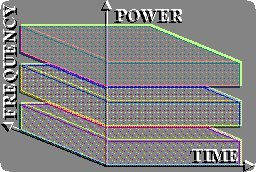|
|
|
WCDMA (UMTS)
TDCDMA
CDMA2000
WCDMA (DoCoMo)
TD-SCDMA
|
|
Mobiles
Bluetooth
HomeRF/SWAP
WAP
GPRS, HSCSD
EDGE
CAMEL, IN
|
|
|
3G and UMTS Technology
 Mobile data communications is evolving quickly because of Internet, Intranet, Laptops, PDAs and increased requirements of workforce mobility. 3G UMTS will be the commercial convergence of fixed line telephony, mobile, Internet and computer technology. New technologies are required to deliver high speed location and mobile terminal specific content to users. The emergence of new technologies thus provides an opportunity for a similar boom what the computer industry had in 1980s, and Internet and wireless voice had in 1990s. Mobile data communications is evolving quickly because of Internet, Intranet, Laptops, PDAs and increased requirements of workforce mobility. 3G UMTS will be the commercial convergence of fixed line telephony, mobile, Internet and computer technology. New technologies are required to deliver high speed location and mobile terminal specific content to users. The emergence of new technologies thus provides an opportunity for a similar boom what the computer industry had in 1980s, and Internet and wireless voice had in 1990s.
The main IMT-2000 standardisation effort was to create a new air interface that would increase frequency usage efficiency. The WCDMA air interface was selected for paired frequency bands (FDD operation) and TDCDMA (TDD operation) for unpaired spectrum. 3G CDMA2000 standard was created to support IS-95 evolution.
 The UMTS transport network is required to handle high data traffic. A number of factors were considered when selecting a transport protocol: bandwidth efficiency, quality of service, standardisation stability, speech delay sensitivity and the permitted maximum number of concurrent users. In the UMTS network, ATM (Asynchronous Transfer Mode) is defined for the connection between UTRAN and the core network and may also be used within the core network. In addition to the IMT-2000 frame many new standards will be integrated as part of the next generation mobile systems. Bluetooth and other close range communication protocols and several different operating systems will be used in mobiles. Internet will come to mobiles with WAP, i-mode and XML protocols. 3G development has helped to start the standardisation and development of large family of technologies. The UMTS transport network is required to handle high data traffic. A number of factors were considered when selecting a transport protocol: bandwidth efficiency, quality of service, standardisation stability, speech delay sensitivity and the permitted maximum number of concurrent users. In the UMTS network, ATM (Asynchronous Transfer Mode) is defined for the connection between UTRAN and the core network and may also be used within the core network. In addition to the IMT-2000 frame many new standards will be integrated as part of the next generation mobile systems. Bluetooth and other close range communication protocols and several different operating systems will be used in mobiles. Internet will come to mobiles with WAP, i-mode and XML protocols. 3G development has helped to start the standardisation and development of large family of technologies.
This section covers some of the core UMTS technologies and it will be updated regularly.
|
3G Network Planning Basics
|
|
|
|
|
|